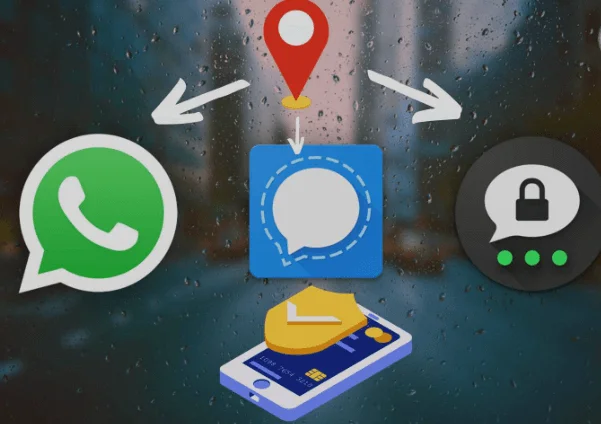WhatsApp users in Pakistan are becoming easy targets for hackers who aim to hack their accounts. These hackers intend to maliciously use the personal details of these users. This disturbing trend highlights the need for enhanced security measures to protect users’ privacy. Cybercriminals have compromised many, and now they are asking how they can be safely secured.
Methods of Attack:
Cybercriminals are employing various tactics to target Pakistani WhatsApp users, including:
- Phishing scams: The users receive several e-mail messages containing some links to some websites with the intention of getting passwords, credit card account numbers and other details the link seem to be from a genuine looking web site or from a friend.
- Malware attacks: A new type of scam that has been reported by users is a malicious link being shared in the group that infects the user’s device with malware that steals personal information.
- Fake news and propaganda: New type of scam that has been brought up by the users is when there is a link to a site that posts malicious links in the group that uses viruses to hack the user’s’ devices to steal from them.
- Social engineering techniques: There are cases where hackers are trying to get information about users or their accounts by posing as legitimate users or an organization.
Consequences of Attacks:
The consequences of these attacks can be severe, including:
- Identity theft: Thieves may steal matters such as a person’s identity, which they could then use or manipulate for embezzlement and theft.
- Financial loss: This could happen with spam, or with a phishing attack from a malicious entity, or with a program that the user unwittingly installs on his computer and which runs through his money.
- Compromised security: Consequently, account and device can be at risk of attacks from hackers and their personal information will be vulnerable for monitoring.
Read Also: Twitter Disagrees: Users Support Apple’s Potential OpenAI Integration
Precautions and Solutions:

To protect yourself from these attacks, follow these precautions:
- Be cautious of suspicious links: Prefer not to follow or share links without first checking their validity.
- Use strong passwords and two-factor authentication: You should set a strong password and use the two-factor authentication option for extra security.
- Keep your device and WhatsApp up to date: Third, always ensure you are using the latest version of the software operating your device and WhatsApp as newer software releases contain build in security patches.
- Use a reputable antivirus software: Always use antivirus software and ensure they are updated regularly to protect your machine against viruses.
- Exercise caution with unfamiliar messages: Do not reply to unknown numbers. Be cautious when receiving messages, pictures, or videos from unknown numbers. Avoid engaging with links or icons sent by unknown numbers. This is a common tactic used by fake accounts and scams to spread malware.
- Regularly update privacy settings: To minimize exposure of personal information, access the app’s settings. Check the settings, such as WhatsApp privacy settings, for instance. This is the only way to ensure your personal information remains secure.
What to Do If Your Account is Hacked?
If your WhatsApp account is hacked, take the following immediate steps:
- Contact FIA helpline 1991: Post the incident on the required forum or visit the nearest FIA cybercrime circle.
- Reach out to WhatsApp support: You should get assistance from WhatsApp Help so that you can gain control of the account as you prevent any further intrusion.
- Inform your contacts: Inform friends, relatives, neighbors, and other contacts about the hacking to avoid unauthorized and unlawful use of your account to carry out scams.
Conclusion:
In conclusion, The escalation of cyberattacks on Pakistani users of the application is a significant concern. To address this issue, security measures must be implemented to protect users. Adhering to protection rules is crucial in the contemporary world to prevent such attacks. Sophisticated hackers employ various tactics to gain unauthorized access. These tactics include phishing schemes, which trick individuals into revealing sensitive information. Additionally, hackers use virus-injected malware to compromise systems and fake news to spread misinformation. Social engineers manipulate individuals into divulging personal information, ultimately gaining access to their accounts. In most cases, these attacks leave one suffering from loss of identity, money, and security. If someone has compromised your account, file a complaint with the FIA helpline at 1991. Additionally, contact the WhatsApp support for assistance. Inform friends and family about the situation to ensure everyone is aware of the issue.
The research focused on the threats and vulnerabilities faced by WhatsApp. Based on this research, I believe we should improve WhatsApp’s security. This improvement should involve implementing better security features. Additionally, users should be more aware of the threats they face. We must warn ourselves of the dangers of the internet.We must take necessary measures to protect ourselves from these dangers.
What measures do you undertake in order to ensure that your WhatsApp account does not fall to cybercriminals? Have you ever fallen for one of these scams? Have you discovered a way to avoid these programs or defraud them? Leave your experience and advice in the comments section below.
It is important to always note that the responsibility of protecting computers and computer networks is not just for IT professionals, but it is a collective responsibility and hence let us work together and make our digital society more secure. Stay safe online!

